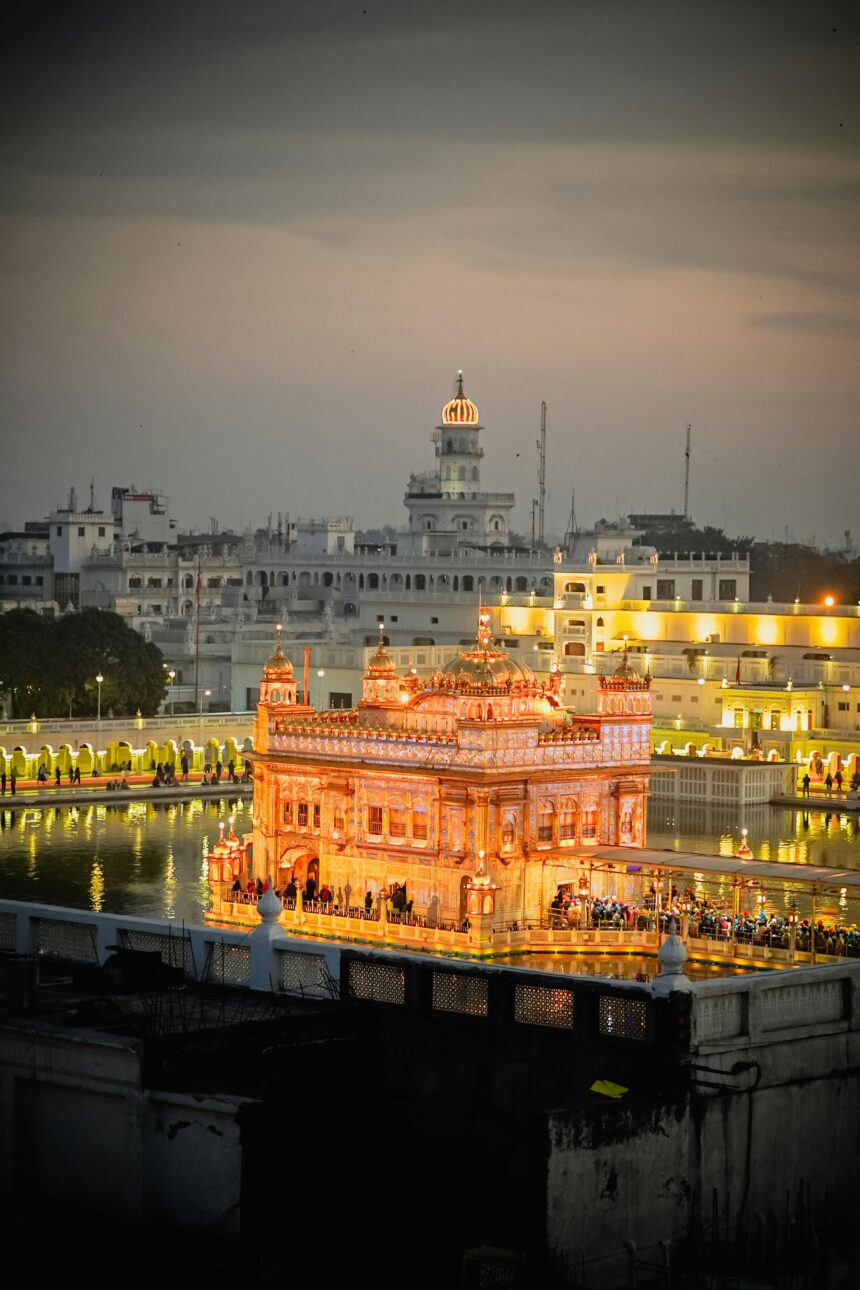Key Metrics: Punjab’s Political and Economic Significance
- Lok Sabha Seats: 13 (2.4% of total parliamentary seats).
- Rajya Sabha Seats: 7 (2.8% of total).
- Population: Over 31 million (2023 estimate).
- Voter Base: Approximately 20 million registered voters.
- Literacy Rate: 75.8% (Census 2011).
- Urbanization: Around 37.5%, with cities like Ludhiana, Amritsar, and Chandigarh serving as key hubs.
- Economic Contribution: Contributes 3% to India’s GDP, with a strong focus on agriculture, food processing, and manufacturing.
(Source: Election Commission of India, Ministry of Statistics and Programme Implementation)
Introduction
Punjab, often referred to as the “Granary of India,” holds significant political weight despite its modest size and representation in Parliament. Its 13 Lok Sabha seats have historically played a decisive role in coalition dynamics, policy direction, and governance. With a politically aware electorate and a history of grassroots movements, Punjab’s parliamentary representation offers insights into the state’s influence on national politics. This article explores the importance of Punjab’s 13 Lok Sabha seats, highlighting their impact on India’s political landscape.
Punjab’s Political Relevance
1. A Crucial Player in Coalition Politics
Punjab’s 13 Lok Sabha seats, though relatively small in number, often become critical in coalition scenarios.
- Historical Context:
- In the 2004 General Elections, Punjab’s Congress-led seats contributed significantly to the formation of the UPA government.
- The Shiromani Akali Dal (SAD), in alliance with the BJP, has played a key role in past NDA coalitions.
- Current Scenario:
- With fragmented voter loyalties, Punjab’s representation holds the potential to influence coalition stability.
(Source: Election Commission of India)
2. A Voice for Agricultural Reforms
Punjab, as an agrarian powerhouse, ensures that its MPs bring agricultural issues to the national forefront.
- Key Contributions:
- Advocacy for Minimum Support Prices (MSPs) and farm subsidies.
- Representation during debates on key policies, including the Farm Bills of 2020, which sparked nationwide protests originating in Punjab.
(Source: Ministry of Agriculture and Farmers Welfare)
3. Balancing Regional and National Narratives
Punjab’s political parties often balance regional identity with national issues, amplifying its role in governance.
- Key Players:
- The Congress, Shiromani Akali Dal (SAD), and Aam Aadmi Party (AAP) dominate the political landscape, each with a unique approach to integrating state and national priorities.
- Issues like Sikh identity, federalism, and farmer welfare often shape parliamentary debates led by Punjab’s MPs.
(Source: PRS Legislative Research)
Policy Areas Influenced by Punjab’s Representation
1. Agriculture and Rural Development
Punjab’s MPs have been vocal advocates for agrarian reforms, given the state’s reliance on farming.
- Key Achievements:
- Consistent lobbying for higher MSPs and subsidies for wheat and rice production.
- Advocacy for water conservation and sustainable farming practices.
2. Border Security and National Defense
Punjab shares a 553 km border with Pakistan, making its MPs central to discussions on national security and foreign policy.
- Impact:
- Representation on issues like cross-border infiltration and trade through the Wagah-Attari border.
- Support for defense personnel and veterans, given the state’s significant contribution to India’s armed forces.
(Source: Ministry of Home Affairs)
3. Industrial Growth and Employment
While agriculture dominates, Punjab’s industrial sectors, including textiles and food processing, are critical to its economy.
- Policy Influence:
- Advocating for central support to boost small and medium enterprises (SMEs) and attract investment.
- Lobbying for better rail and road connectivity to enhance trade.
(Source: NITI Aayog State Reports)
Challenges in Maximizing Punjab’s Political Influence
1. Fragmented Voter Base
Punjab’s electorate is divided across caste, religion, and economic lines, leading to fragmented mandates.
- Impact:
- No single party consistently dominates, reducing the state’s collective bargaining power at the center.
2. Economic Dependence on Agriculture
With limited diversification, Punjab’s MPs often focus disproportionately on agricultural issues, leaving other sectors underrepresented.
3. Regional vs. National Focus
Balancing state-centric issues like federalism and Sikh identity with national priorities remains a challenge for Punjab’s political leadership.
Opportunities for Punjab’s Parliamentary Representation
1. Strengthening Infrastructure
Punjab’s MPs can push for increased central funding to modernize infrastructure, including highways, irrigation systems, and industrial hubs.
2. Promoting Renewable Energy
With its vast agricultural resources, Punjab has immense potential to lead in bioenergy and solar power projects.
3. Addressing Youth Employment
Representing one of the youngest populations in India, Punjab’s leaders can advocate for skill development and startup support to curb migration.
(Source: Ministry of Skill Development and Entrepreneurship)
Expert Opinions
- Political Analyst’s Insight:
- “Punjab’s Lok Sabha MPs play a pivotal role in addressing national issues like agriculture and security, but their impact could grow further with unified regional priorities.”
- Economist’s Perspective:
- “By diversifying its economy and focusing on industrial growth, Punjab’s parliamentary representation can contribute significantly to India’s economic trajectory.”
(Source: PRS Legislative Research)
What Lies Ahead?
1. Strengthening Regional Identity in National Politics
Punjab’s leadership must strike a balance between preserving regional identity and contributing to national governance.
2. Leveraging Coalition Opportunities
In a fragmented political landscape, Punjab’s MPs can play a key role in shaping coalition dynamics, ensuring the state’s priorities are addressed.
3. Adapting to Changing Voter Demographics
Punjab’s leaders must address evolving voter concerns, including urbanization, employment, and climate resilience.
Conclusion
Punjab’s 13 Lok Sabha seats hold disproportionate importance in shaping India’s national policies, from agriculture and rural development to national security and industrial growth. Despite challenges like fragmented voter bases and regional disparities, Punjab’s political representation continues to be a cornerstone of India’s democratic framework. By leveraging its unique strengths and addressing emerging challenges, Punjab can further amplify its influence on national governance in the years to come.


Leave a Reply